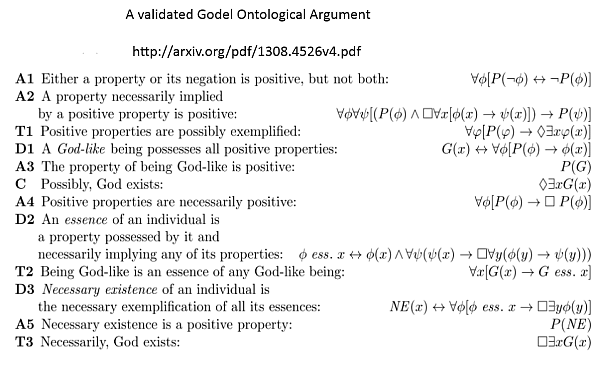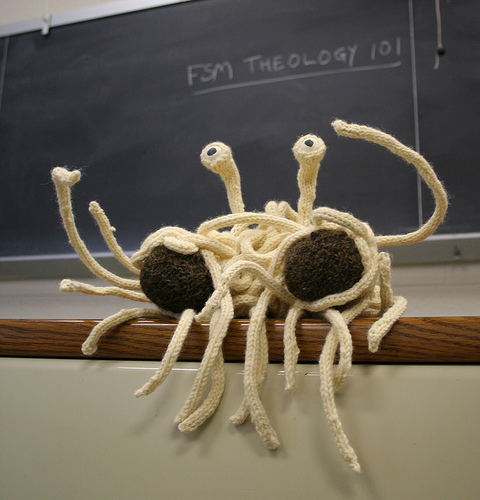I keep getting pulled away from an intended post [– U/D, Feb 18 2015: cf here — ] on FSCO/I and that famous little round reel as an undeniably concrete case in point:
I have to get around to it . . .
Anyway, a couple of days ago, given some recent exchanges in and around UD, I took time to post a William Lane Craig animation on morality, which has excited quite a debate.
It’s probably worth re-posting the animation:
[youtube OxiAikEk2vU]
Along the way, the significance of the IS-OUGHT gap and of the inherently good God, a necessary and maximally great being as the only serious candidate IS who can ground OUGHT has come up (e.g. cf here).
That leads me to note on a recent discussion by Benzmuller and Paleo of the use of a theorem prover to assess a form of Godel’s Ontological argument and its unsurprising verdict that such is quite valid. [U/D Jan 31] Where, let me observe that nothing, non-being, can have no causal powers; so if there ever were utter nothing, nothing would forever obtain. If something now is, something always was, something that is necessary. Thus, the crux of the matter in hand is to characterise what sort of serious candidate necessary being best fills the bill.
Thus, we may observe:
 That is, if you would reject the argument, you need to challenge soundness and thus address the truth or otherwise of premises. Thence, back to worldview foundations:
That is, if you would reject the argument, you need to challenge soundness and thus address the truth or otherwise of premises. Thence, back to worldview foundations:

That led me to recall a recent post in my personal blog on a more accessible form, following Plantinga et al:

. . . a serious candidate necessary being — flying spaghetti monsters etc need not apply — will be either impossible or actual.
Which, is where the existence of God, an eternal, omniscient, omnipotent, omni-benevolent mind independent of other beings for existence and causally adequate to account for a credibly contingent observed cosmos that from core physics on up seems massively fine tuned for the existence of Carbon Chemistry, aqueous medium, cell based life comes in. (That is, the issue of a necessary being at the causal root of the observed cosmos is not merely arbitrarily pulled out of thin air and fevered imagination; we are trying to identify a best candidate to fill the bill, and a maximally great being with all great making properties to fullest aggregate extent and no lesser making properties is an obvious candidate to beat. Where also, as we saw, being eternal is directly connected to being necessary as a being. Also, a truly necessary being — a successful candidate — will exist in all possible worlds. [To see why, try to imagine a coherent world in which 2 + 3 = 5 does not hold, or by contrast one in which square circles exist.])
That is, we see already why it is so that God will either be impossible, or actual.
Another — simpler — way of putting the modal ontological argument helps us see that from a fresh angle:
P1: It is possible that a Maximally Great Being (MGB) exists [–> where such a being has greatmaking properties and no lesser making ones, to the maximal degree; and will be a successful serious candidate necessary being, NB]
P2: If it is possible that a MGB [–> inter alia a serious candidate NB] exists, then a MGB exists in some possible world
P3: If a MGB exists in some possible world, then a MGB exists in all possible worlds [–> As,
(P3.1) a serious NB candidate will be impossible or else will exist in any possible world, and
(P3.2) existence in one possible world directly indicates that the candidate being is possible, and where
(P3.3) something like a flying spaghetti monster will be material, composed of arranged parts etc, and will thus not be necessary . . . this also tells us something about constraints on what a NB can be like — a mind or abstract entities are serious candidates (and, immediately, we see that materialists or those deeply influenced by evolutionary materialism dressed up in a lab coat, will have endless conceptual difficulties with necessary beings; I suggest a glance here on in context to begin to see the inescapable incoherence and self-refutation of such evolutionary materialism. Never mind the lab coat and the boasts of being rational, evo mat for short is inescapably self refuting and irrational. This is already an important side benefit of reflecting on this topic.)]
P4: If a MGB exists in all possible worlds, then a MGB exists in the actual world [–> the one that we know to be instantiated, all around us]
P5: If a MGB exists in the actual world, then a MGB exists
________________________________________
C6: A MGB. . . which is in effect, God . . . exists.
So where does this complex chain of reasoning stand?
It is valid [as can be shown technically using propositional calculus . . . but is also intuitively plain], and in fact given the logic of being, possibility and contingency vs necessity, premises 2 – 5 are not generally controversial. The key issue, then, is the truth or otherwise of P1: it is possible (not IMPOSSIBLE) that a MGB exists.
You can of course reject P1, but at a price: showing (not merely asserting or skeptically implying or playing at knocking over strawmanised parodies, etc. . . . ) the impossibility of a MGB.
Tough row to hoe (especially after the same Plantinga sank the deductive problem of evil several decades ago . . . which used to be a favourite atheistical argument to claim that God as conceived by theists was impossible).
So, it seems the modal form ontological argument forces us to face serious issues and implications on what may be reasonably understood on the nature of God and how that works to ground morality. Which carries me back to no 135 in the WLC thread, where I clip:
1 –> As may be easily seen, worldviews must rest on finitely remote first plausibles, on the grounds that infinite regress and circularity are not acceptable. These will be start points for reasoning, best explanatory presuppositions that structure our worldviews on factual adequacy, coherence and explanatory power.
2 –> In this, one of our main things is the premise of moral government that comes out as soon as we see the consensus that fairness is binding. If you doubt, just watch quarrels, and listen to conscience. and listen to the ghost of that murdered child.
3 –> We notice that moral government by the golden rule rooted in the inherently good Creator-God, a necessary and maximally great being makes excellent sense of moral government and allows us to undergo personal and community reformation once we become humble and teachable in the face of evident reason, reality and truth. AKA, willing to admit that X is my neighbour, just as much a quasi-infinite value image bearer of God as I am. (Where also, there are ever so many good reasons otherwise to take the reality of God seriously. Start here for one way forward. Or, here if you want a more worldviews rooted base.)
4 –> In this frame, we expect conscience to be The Lord’s candle within, to be trained and followed, not snuffed out. And justice then teaches us much and grounds much at personal and family etc levels. Light shines far and wide from a city set on a hill in a dark world.
5 –> In the other corner, we find that dismissing God and seeking enlightenment everywhere else runs into the IS-OUGHT gap and the looming menace, might and manipulation — however prettified as institutional socialisation and whatnot — make ‘right.’
6 –> Linked, we see that general delusion is let loose in the mind as conscience’s testimony that we are under moral government must be dismissed as Ruse’s “illusion fobbed off on us by our genes to get us to cooperate.”
7 –> So, on subjectivist- relativist views like this the credibility of the perceiving, reasoning, warranting, deciding, acting, knowing mind is undermined fatally in self-referential incoherence.
8 –> In short, purporting to be in enlightenment, we find ourselves instead in en-darkenment and confusion, prone to manipulation. Which, should ring a few warning bells in and of itself.
9 –> So the conclusion is obvious, the evident binding nature of ought and moral perceptions rooted in conscience, can be grounded on an ethical theism. Where, the rejection of such ends in evident self referential incoherence.
________________
On this alone, it would be reasonable to accept the premise of a world founded by an inherently good Creator God, a necessary and maximally great being, and to build life and community on that premise. Light dispels darkness.
But, some will argue, what about Euthyphro’s dilemma?
For that, we may observe how God as understood in light of the above simply is not subject to such an argument:
. . . the point of this dilemma is to try to suggest that theism or the like has no real answer to the is-ought gap either [as “good” is either the arbitrary diktat of god or else it is independent of god] . So in effect, we have to shrug, take moral feelings as a brute given, and try to work out the best compromise we can.
In that light, it is no surprise to see John Locke, in laying a foundation for what would become modern liberty and democracy, would take time in his 2nd Treatise on Civil Government, to cite “the judicious Anglican Canon Richard] Hooker”:
So, we see how we may have an understanding of God that is reasonable and reasonably grounds the heart of morality on our equally quasi-infinite value as beings made in the divine image with the precious gift of responsible freedom.
So, we can argue that light dispels darkness, and just so, we may see how that:
Micah 6:8 He has told you, O man, what is good;
and what does the Lord require of you
but to do justice, and to love kindness,[b]
and to walk humbly with your God? [ESV]
So now, let us ponder, is all the huffing and puffing on how we cannot come to an objective foundation for morality, little more than the worked out implications of rejecting the well known but unpalatable alternative that OUGHT is grounded in the eternal IS of the inherently good Creator-God, a necessary and maximally great being who has granted us the gift of responsible freedom? So that, we all know but struggle with the premise that we should respect, cherish and treat neighbour as self? END
